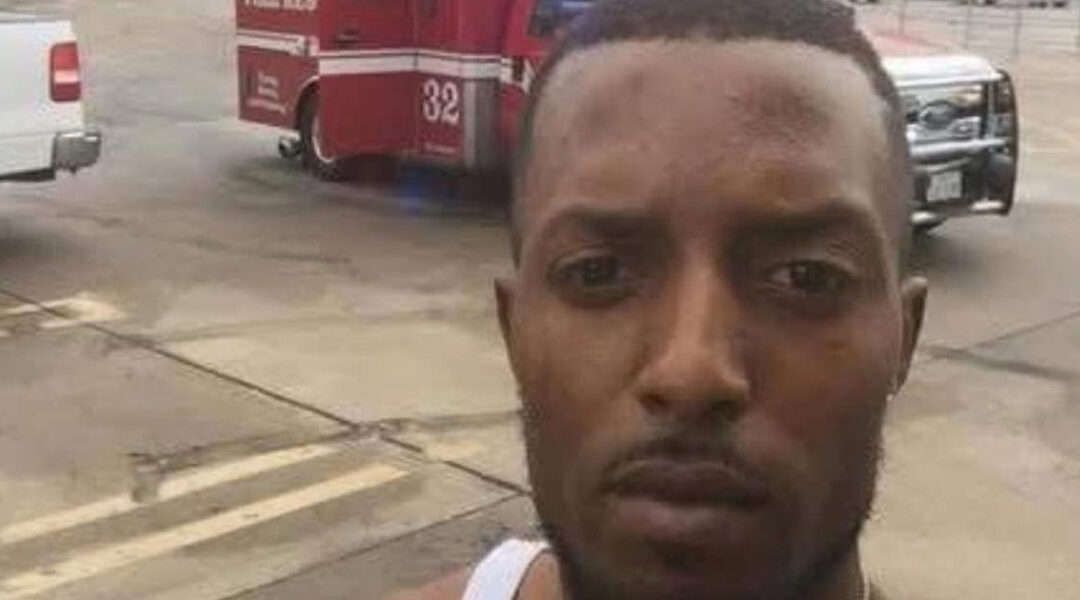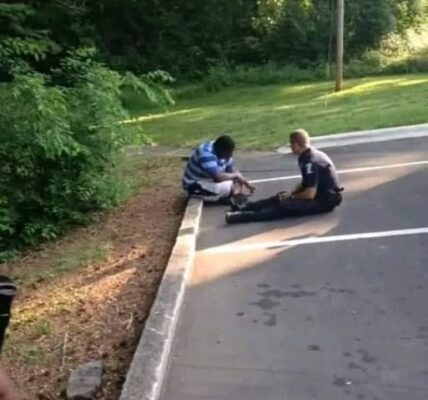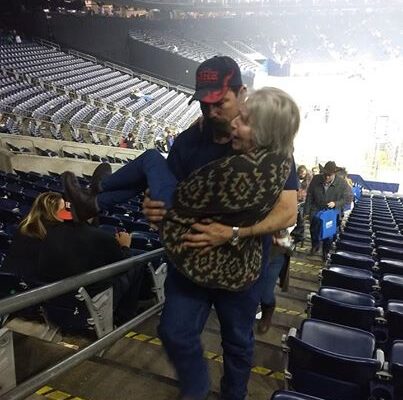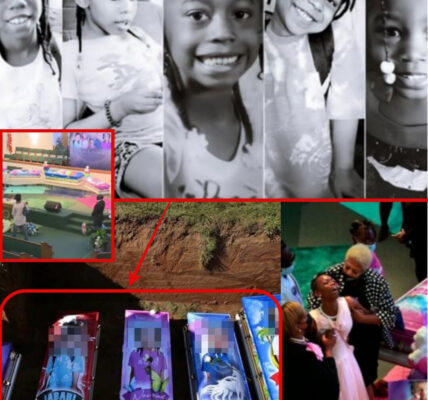
It was supposed to be a routine errand. I was on my way to pay a bill at the shopping center near Sam’s Club, the kind of chore you don’t even think twice about. The rain was steady, traffic was heavy, and I slipped into the turning lane like everyone else, waiting for the light to change.
But almost immediately, I noticed something unusual.
Up ahead in the lane, a white Chevy truck sat completely still. Cars honked behind it, horns echoing in frustration, drivers leaning out their windows to shout: “Move! Get out of the way!” The line of cars stretched back, growing longer by the minute. Some impatient drivers whipped around, cutting into the next lane just to get past.
At first, I felt the same irritation. We’ve all been there — stuck behind someone not paying attention, waiting for them to snap out of it. I tapped my steering wheel, muttering under my breath, waiting for the truck to finally roll forward. But it didn’t.
Five minutes passed. The Chevy didn’t budge.
As I made the turn into the lot, I caught a clearer glimpse of the driver. Something in the way he sat — frozen, rigid, eyes wide but unfocused — made my stomach twist. He wasn’t just ignoring the world. He wasn’t there.
I drove into the lot, heading for the speed bump, but the image of that man wouldn’t leave me. I slowed down, thinking about how easily I could keep driving, how everyone else already had. Yet something whispered inside me: Go back.
So I turned my car around.
I parked on the far edge of the lot, stepped out into the rain, and walked to the curb. Cars still streamed off the bridge, splashing water, whipping around the stranded truck. From where I stood, it looked lifeless, the man inside not moving at all.
I knew I had to get to him.
I raised my arm, signaling to traffic. At first, cars swerved around me, annoyed, honking as they passed. But I kept stepping forward, waving them down. Slowly, reluctantly, they stopped. One lane, then another, until a wall of vehicles gave me space. I crossed all four lanes, heart pounding, until I was face-to-face with the Chevy.
I leaned toward the window. The man’s eyes were wide open, staring, but when I spoke to him, he didn’t blink, didn’t speak, didn’t even twitch.
“Sir, can you hear me? Pull over if you can. Please talk to me.”
Nothing.
His window was rolled halfway down, and rain dripped into the cab. His clothes clung to him like he’d been standing in a storm, but then I realized — it wasn’t rain. It was sweat. His body was drenched, slick with it, as if he’d been running for miles, though he hadn’t moved an inch.
I told him, gently but firmly, “I’m going to unlock your door. Please don’t hurt me.” No reaction. I reached in, unlatched it — and suddenly his foot slipped from the brake. The truck lurched forward, rolling into the street.
I didn’t think. I dove inside, slammed my palm on the brake, and shoved the gear into park. My heart raced. If I hadn’t stopped it, that truck could have caused a pileup.
By now, I was certain: he was unconscious, locked somewhere deep inside his own body. I hooked my arms under his, lifted with all my strength, and dragged him out of the seat. His weight pressed heavy against me, but adrenaline carried me.
Without a thought for the traffic around me, I started walking. Step by step, across four lanes, through the rain, holding up this stranger who couldn’t walk for himself. Drivers began to realize what was happening. Cars slowed, then stopped completely, until the chaos of traffic melted into silence. People stared, watching me stagger with the man across the asphalt.
On the grass by the curb, I laid him down gently. His skin was clammy, his chest rising shallow and uneven. For a moment, I just looked at him, praying silently he would hold on. Then I ran back to the Chevy, started it, and moved it out of danger, parking it near my own car.
By the time I returned, more people had pulled over. Six cars in total. And by grace, three of those drivers were nurses. They rushed to my side without hesitation, dropping their umbrellas, kneeling in the wet grass. Together, we tried to keep him stable.
Then his body stiffened. His arms jerked violently. His jaw clenched. He began to seize.
The seizure lasted four endless minutes. His body convulsed so hard I thought he might break. Foam and blood spilled from his mouth as his chest heaved. The nurses shouted instructions — “Roll him! On his side!” — and we moved quickly, turning him so he wouldn’t choke. My hands shook, but I held him steady, whispering: Stay with us. Please, stay.
At last, the seizure subsided. His body went limp. For a terrifying moment, I wondered if that was it.
Then the wail of sirens cut through the rain. Paramedics rushed in, pushing us gently aside, checking vitals, running rapid tests. We stepped back, soaked, exhausted, praying silently.
Minutes later, the news came: his blood sugar had crashed to 17. He was in a diabetic coma. If nothing had been done — if he’d been left sitting in that truck — he would have died within the hour.
And there was more. The reason his truck had stopped in the first place wasn’t hesitation or confusion. He’d suffered a mild stroke. That was why he froze in traffic, unable to respond, unable to even reach for help.
Hearing those words, my knees nearly buckled. My chest ached with the weight of what could have been. If I hadn’t turned back, if the nurses hadn’t arrived, if the paramedics had been a few minutes later, this stranger’s life would have ended in the driver’s seat of a Chevy truck, alone in the rain.
But that wasn’t the ending he got.
Instead, he was lifted out of danger, carried by strangers, cared for by nurses who just happened to be passing by, saved by paramedics who rushed him away in time.
And me? I was left standing in the drizzle, clothes soaked through, staring at the empty spot where the truck had been. I’d only meant to pay a bill. Instead, I’d walked into a moment that will stay with me for the rest of my life.
I thank God for it. For the whisper that told me to turn back. For the strength to carry him. For the nurses, the paramedics, the strangers who stopped their cars. For all of it.
Sometimes life puts us exactly where we need to be. And on that rainy afternoon, I was exactly where I was supposed to be.




